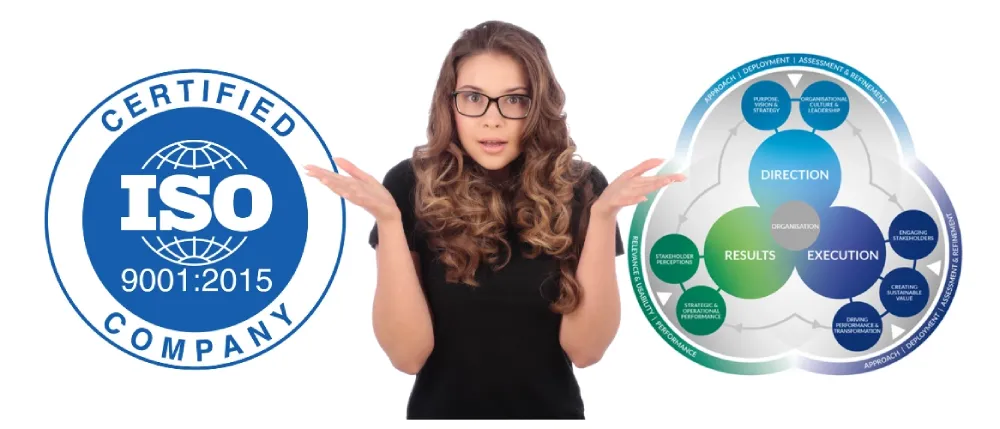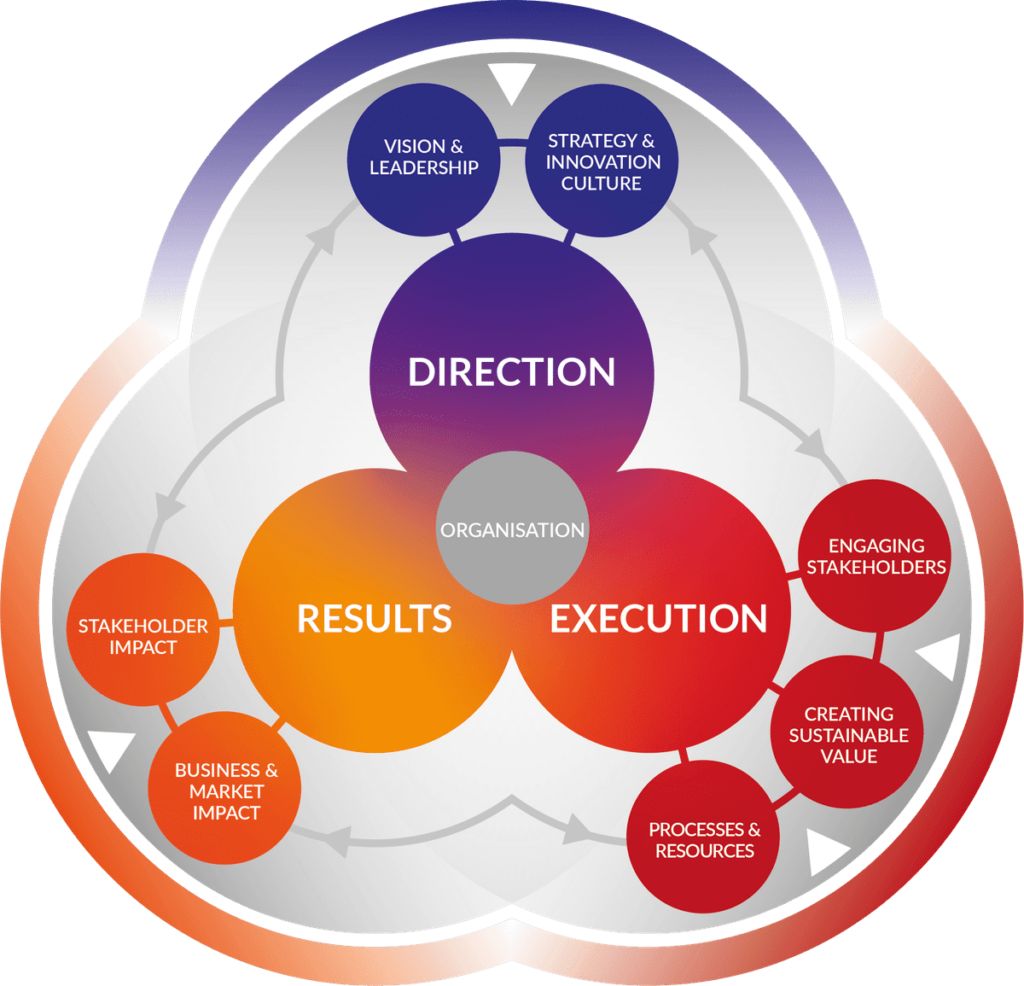One of the most frequently asked questions by companies who are considering quality management certification is “EFQM vs. ISO 9001: which one is better?”
Below is a comparison of the factors that should be taken into consideration when making that choice, as EFQM and ISO 9001 are used in different ways and to achieve different outcomes. Let’s look at the advantages of ISO certification benefits first.
The benefits of ISO 9001 certification
The main benefit that most companies receive from ISO 9001 certification is that it gives access to contracts and tendering processes. Many tenders and pre-qualification questionnaires specify ISO 9001 either as a prerequisite or a requirement. This gives a certified company a significant advantage.
ISO 9001 is not a diagnostic tool, however. It provides a ready-made off-the-shelf package for management system development. Generally speaking, ISO 9001 will help provide a platform that could deliver improvement, but it won’t deliver improvement in itself despite the universal belief.
The benefits of using EFQM
Now let’s have a look at the EFQM certification benefits. The EFQM Model is not a standard to be achieved. There are no “met/not met” criteria. The EFQM Model is rarely used as pre-selection criteria on contracts, and it generally won’t give a company the advantage in a tendering process that ISO 9001 might. So, what is it?
The EFQM is a framework for self-diagnosis. It has a set of criteria and scoring methodology that enables a company to introspectively assess what its strengths and weaknesses are. Putting it simply, it is a more sophisticated SWOT analysis. It can help an organization look objectively and holistically at itself and add balance to a strategic planning process.
- Let’s also look at some of the strengths of the EFQM model.
- Its criteria cover strategic processes in far more detail than ISO 9001
- It does the “systems approach” better too
- Its criteria are “weighted” and identify that some processes are more critical than others
- It does “leadership” in a more detailed and academically sound way
- It actually has criteria that support the “Involvement of People” quality principle
- EFQM self-assessment is surprisingly good fun!

So which certification is better?
The correct answer is that these two certifications serve different purposes and deliver different outcomes. ISO 9001 is not a diagnostic tool, and EFQM is not a standard to meet. If a company is seeking quality management certification, it needs to understand its objective first before making a decision on which certification to pursue. The answer could well be “neither” or “both.”













